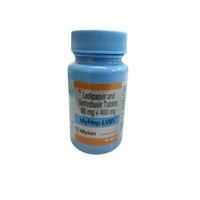Vaping has become a popular alternative to traditional smoking, particularly among younger generations and those seeking to quit smoking cigarettes. Marketed as a safer option, vaping involves inhaling aerosolized liquid from an electronic cigarette (e-cigarette) or vape pen. However, as the use of e-cigarettes continues to rise, it’s crucial to understand the health risks associated with vaping. This article explores the potential dangers of vaping, the impact on health, and what you need to know to make informed decisions about its use.
Understanding Vaping and Its Popularity
Vaping involves the use of devices that heat a liquid—commonly referred to as e-liquid or vape juice—into an aerosol that users inhale. E-liquids typically contain nicotine, flavorings, and other chemicals. The appeal of health risks of vaping lies in its perceived safety compared to smoking cigarettes, the variety of flavors, and the belief that it can aid in smoking cessation.
The Components of E-Liquid and Their Risks
E-liquids contain a mixture of several key ingredients, each of which can pose health risks:
1. Nicotine
Nicotine is a highly addictive substance found in both cigarettes and e-liquids. It can have several harmful effects on health, including:
Addiction:
Nicotine is known for its addictive properties, which can lead to dependence and difficulty quitting.
Cardiovascular Health:
Nicotine can increase heart rate and blood pressure, contributing to cardiovascular issues and raising the risk of heart disease.
Brain Development:
In adolescents and young adults, nicotine exposure can negatively impact brain development and cognitive function.
2. Propylene Glycol and Vegetable Glycerin
Propylene glycol (PG) and vegetable glycerin (VG) are the primary base liquids used in e-liquids. While generally recognized as safe for ingestion, their inhalation can lead to potential health issues:
Respiratory Irritation:
Both PG and VG can cause respiratory irritation and inflammation when inhaled, leading to symptoms such as coughing, wheezing, and shortness of breath.
Potential Toxicity:
When heated, PG can break down into potentially harmful byproducts, including formaldehyde, which is a known carcinogen.
3. Flavoring Agents
Flavorings in e-liquids are often derived from food-grade chemicals, but their safety when inhaled is less understood. Some concerns include:
Chemical Exposure:
Certain flavoring compounds, such as diacetyl, used to create buttery flavors, have been linked to “popcorn lung” (bronchiolitis obliterans), a serious lung disease.
Unknown Long-Term Effects:
The long-term health effects of inhaling flavoring agents are not well-studied, leaving uncertainties about their safety.
Health Risks of Vaping
Despite the perception that vaping is a safer alternative to smoking, emerging research highlights several significant health risks:
1. Respiratory Problems
Vaping can have adverse effects on the respiratory system:
Lung Inflammation:
Studies suggest that vaping can lead to inflammation and damage to the airways, potentially increasing the risk of respiratory conditions like asthma and chronic bronchitis.
EVALI (E-cigarette or Vaping Product Use-Associated Lung Injury):
EVALI is a serious condition linked to vaping that presents with symptoms such as cough, chest pain, and difficulty breathing. The condition has been associated with certain vaping products containing THC or vitamin E acetate.
2. Cardiovascular Health
Vaping may negatively impact cardiovascular health:
Increased Heart Rate and Blood Pressure:
Nicotine in e-liquids can raise heart rate and blood pressure, contributing to cardiovascular strain and potential long-term heart issues.
Potential for Atherosclerosis:
Research indicates that vaping can cause arterial stiffness and endothelial dysfunction, which are early indicators of atherosclerosis (hardening of the arteries).
3. Nicotine Poisoning
Nicotine poisoning can occur, particularly in cases where e-liquids are ingested or improperly handled:
Symptoms:
Nicotine poisoning can cause symptoms such as nausea, vomiting, increased heart rate, and dizziness. Severe cases can lead to seizures and respiratory failure.
The Impact on Youth and Adolescents
Vaping is particularly concerning for young people:
1. Increased Risk of Nicotine Addiction
Adolescents are more susceptible to nicotine addiction due to the ongoing development of their brains. Early nicotine exposure can lead to long-term addiction and increased likelihood of transitioning to traditional tobacco products.
2. Potential for Mental Health Issues
Some studies suggest that nicotine exposure during adolescence can be linked to mental health issues such as mood disorders and cognitive impairments.
Regulatory and Safety Considerations
In response to growing health concerns, many countries and states have implemented regulations to address the risks associated with vaping:
1. Age Restrictions
Most jurisdictions have established minimum age requirements for purchasing and using e-cigarettes to prevent youth access.
2. Quality Control and Labeling
Regulations often require e-liquids to be properly labeled, including nicotine content and ingredient lists, to ensure consumer safety and informed choices.
3. Research and Monitoring
Ongoing research is crucial to better understand the long-term effects of vaping. Regulatory bodies continue to monitor emerging evidence and adjust guidelines to protect public health.
Conclusion
While vaping is often marketed as a safer alternative to smoking, it carries its own set of health risks that should not be overlooked. The potential dangers of nicotine addiction, respiratory problems, cardiovascular effects, and the impact on youth highlight the need for caution and informed decision-making. Understanding these risks and staying informed about evolving research and regulations can help individuals make healthier choices and contribute to ongoing efforts to improve public health. If you’re considering vaping or are concerned about its effects, consulting with a healthcare professional can provide personalized guidance and support.






